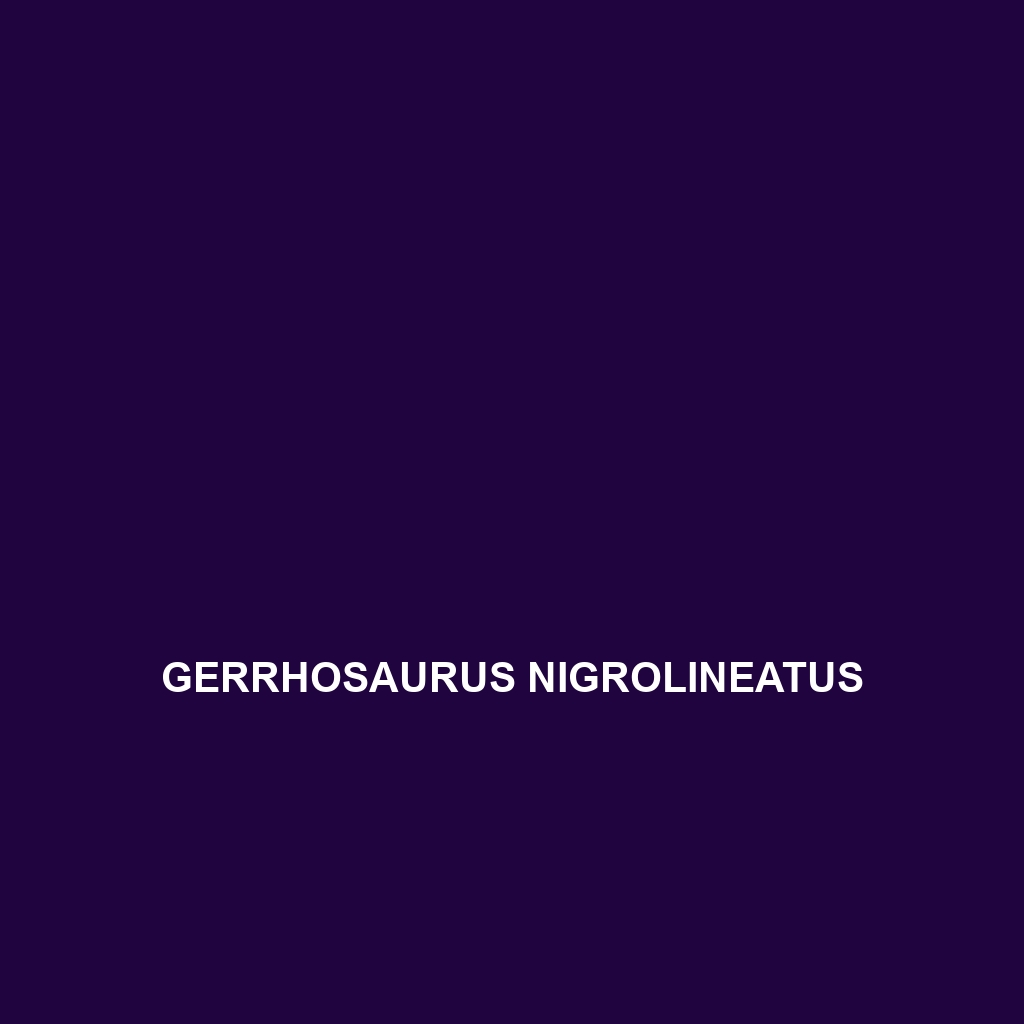<b>Lerista lineata</b>, commonly known as the striped skink, is an adaptable reptile found in various Australian habitats, characterized by its slender body, sandy brown or gray coloration with dark stripes, and a diet primarily consisting of insects. This ovoviviparous species plays a crucial role in its ecosystem by regulating insect populations while serving as prey for larger predators.
Tag: striped skink
Gerrhosaurus multilineatus
<p><b>Gerrhosaurus multilineatus</b>, commonly known as the striped skink, is a resilient insectivorous lizard found in southern Africa's savannas, grasslands, and wooded areas. Characterized by its striking dark stripes and adaptability, it plays a vital role in its ecosystem by controlling insect populations and serving as both predator and prey.</p>
Eutropis englei
The <b>Eutropis englei</b>, or striped skink, is a vibrant, agile reptile found in Southeast Asia's rainforests and savannas, featuring distinct dark stripes for camouflage and a diet primarily consisting of insects. Known for its unique ability to regenerate its tail and adapt to various habitats, this species plays a crucial role in maintaining ecological balance.
Eugongylus unilineatus
Introducing the Eugongylus unilineatus, or striped skink, a medium-sized skink native to Southeast Asia, thriving in tropical rainforests and mangrove swamps. Known for its striking dark brown or gray stripes and insectivorous diet, this diurnal species plays a vital role in its ecosystem by controlling insect populations and aiding in seed dispersal.
Eremiascincus fasciolatus
Discover the Eremiascincus fasciolatus, or striped skink, a medium-sized lizard thriving in Australia's diverse habitats, including rainforests and temperate forests. Known for its unique light and dark striped pattern, this insectivorous skink plays a vital role in maintaining ecological balance and features remarkable agility and climbing skills for evading predators.
Emoia cyanura
<p><b>Emoia cyanura</b>, also known as the striped skink, is a vibrant insectivorous lizard found in the Pacific Islands, particularly in Fiji, Samoa, and Tonga. With distinctive blue tails and sleek bodies, these diurnal skinks thrive in diverse habitats, playing a crucial ecological role by controlling insect populations while exhibiting remarkable agility and tail regeneration abilities.</p>
Dasia semicincta
Dasia semicincta, commonly known as the striped skink, is a diurnal lizard found primarily in the humid coastal regions of Australia and New Guinea, characterized by its distinctive brown or grey body with black stripes and a diet consisting mainly of insects. This ovoviviparous species plays a crucial role in controlling insect populations and serves as both predator and prey within its ecosystem.
Ctenotus taeniatus
Discover the striped skink, or Ctenotus taeniatus, a medium-sized lizard native to central Australia's arid regions. With its distinctive dark and light stripes and diurnal behavior, this agile predator primarily feeds on insects and plays a vital role in maintaining ecological balance.
Cryptoblepharus virgatus
Cryptoblepharus virgatus, also known as the striped skink, is a slender lizard found in coastal areas of Australia and New Guinea, characterized by its shiny scales and distinctive dark brown to black stripes. Diurnal and highly territorial, this species feeds mainly on insects and plays a crucial role in regulating insect populations while contributing to the ecosystem's balance.
Chalcides sphenopsiformis
Discover the Chalcides sphenopsiformis, also known as Schneider's skink, a vibrant species native to the Mediterranean regions, featuring a robust body, smooth scales, and striking striped coloration. This diurnal lizard thrives in coastal habitats, plays a crucial role in controlling insect populations, and exhibits unique defensive behaviors like camouflage and tail regeneration.









